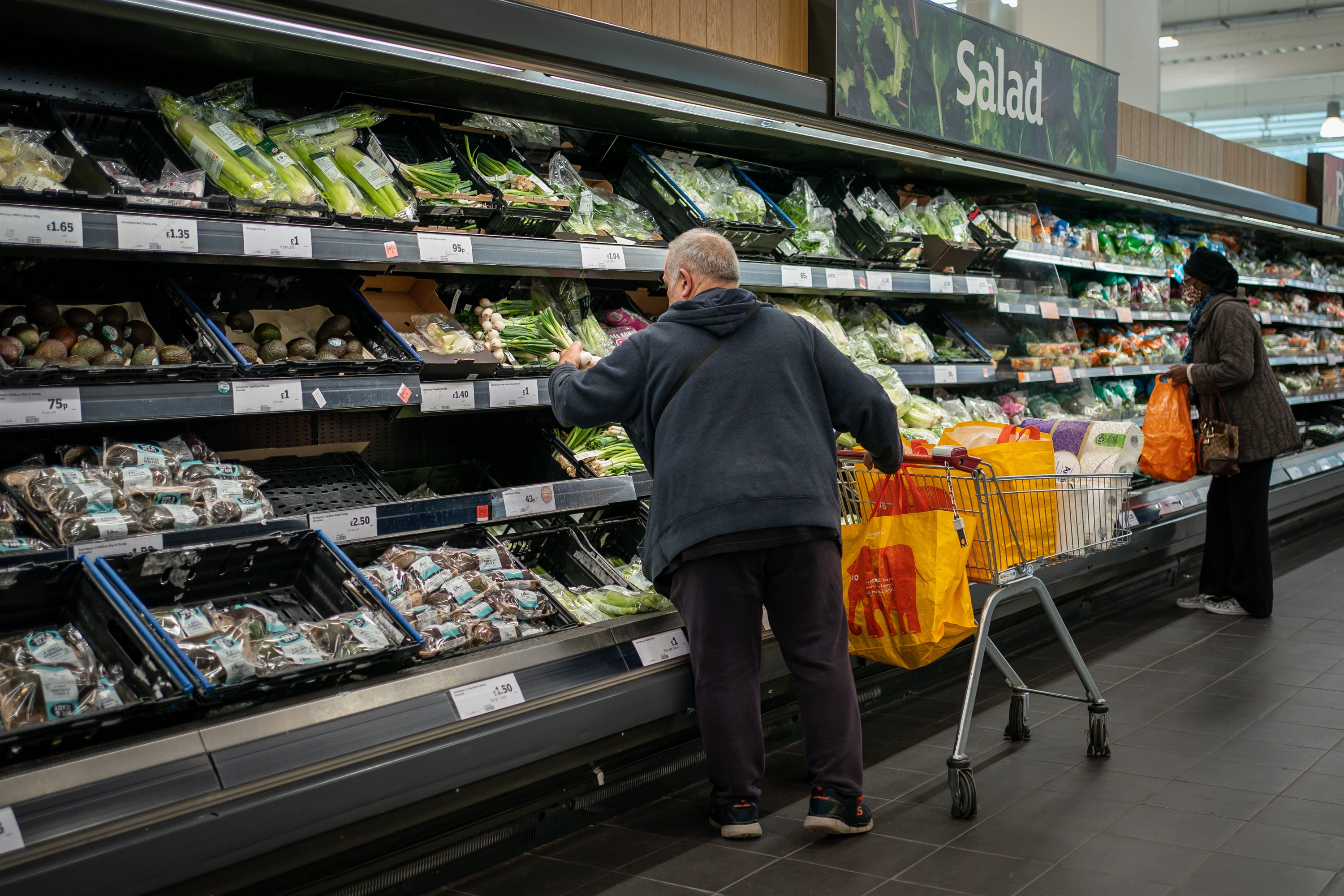Nine in 10 people hit by rising living costs as people cut back on food and car journeys
41 per cent of people cut back on food spending and 45 per cent have reduced car journeys in the last month

Your support helps us to tell the story
From reproductive rights to climate change to Big Tech, The Independent is on the ground when the story is developing. Whether it's investigating the financials of Elon Musk's pro-Trump PAC or producing our latest documentary, 'The A Word', which shines a light on the American women fighting for reproductive rights, we know how important it is to parse out the facts from the messaging.
At such a critical moment in US history, we need reporters on the ground. Your donation allows us to keep sending journalists to speak to both sides of the story.
The Independent is trusted by Americans across the entire political spectrum. And unlike many other quality news outlets, we choose not to lock Americans out of our reporting and analysis with paywalls. We believe quality journalism should be available to everyone, paid for by those who can afford it.
Your support makes all the difference.More than nine in 10 people have seen their living costs rise over the past month, as the price of food, fuel and energy continues to surge, pushing inflation to its highest level in four decades.
The number of people cutting back on food has risen sharply with 41 per cent of people reducing the amount they buy, compared to 8 per cent in September, a poll by the Office for National Statistics found.
Some 45 per cent of respondents said they had cut back on car journeys as the cost of fuel edged perilously close to £2 per litre.
Half of adults said they were worried by big increases to energy bills, which have jumped by £700 a year for the average home after regulator Ofgem hiked the level of its price cap last month. A further 40 per cent jump is expected this winter, taking bills to around £3,000.
Three-quarters of all adults reported they were somewhat worried or very worried or somewhat about increases in the cost of living.
Respondents reported a variety of tactics to manage their budgets with six in 10 people spending less on non-essential items and half saying they had cut down on fuel or energy usage. Just over one-third (35 per cent) said they were shopping around more to look for better value.
Separate official figures showed those concerns have begun to impact shopping habits. Retail sales fell in May as consumers reined in their grocery spending, the ONS said.
Spending on food dropped 1.6 per cent, with supermarket sales down 1.5 per cent and specialist shops such as butchers and bakers seeing a 2.2 per cent fall.
The ONS also revised down sales growth in April, from the 1.4 per cent previous estimation to an increase of 0.4 per cent.
Nicholas Farr, an analyst at Capital Economics said the fall indicated consumer spending was “softening rather than sinking”.
“The fall in retail sales in May suggests that the decline in households’ real incomes from surging inflation is starting to hit consumer spending a bit harder.”
However, he said the figures are unlikely to deter the Bank of England from continuing to hike interest rates.
“Either way, we still expect interest rates to be raised from 1.25 per cent now to 3 per cent next year, higher than the peak of 2 per cent expected by the consensus of analysts.”
Rishi Sunak claimed on Wednesday the government was going all it can to combat a surge in prices as inflation hit a fresh 40-year high, climbing 9.1 per cent in the 12 months to May.
Economists fear inflation, the rate at which prices rise, will climb further in the months ahead. The Bank of England estimates it could reach 11 per cent this year.
“We are using all the tools at our disposal to bring inflation down and combat rising prices,” the chancellor said after the figures were announced.
“We can build a stronger economy through independent monetary policy, responsible fiscal policy which doesn’t add to inflationary pressures, and by boosting our long-term productivity and growth.”
Join our commenting forum
Join thought-provoking conversations, follow other Independent readers and see their replies
Comments